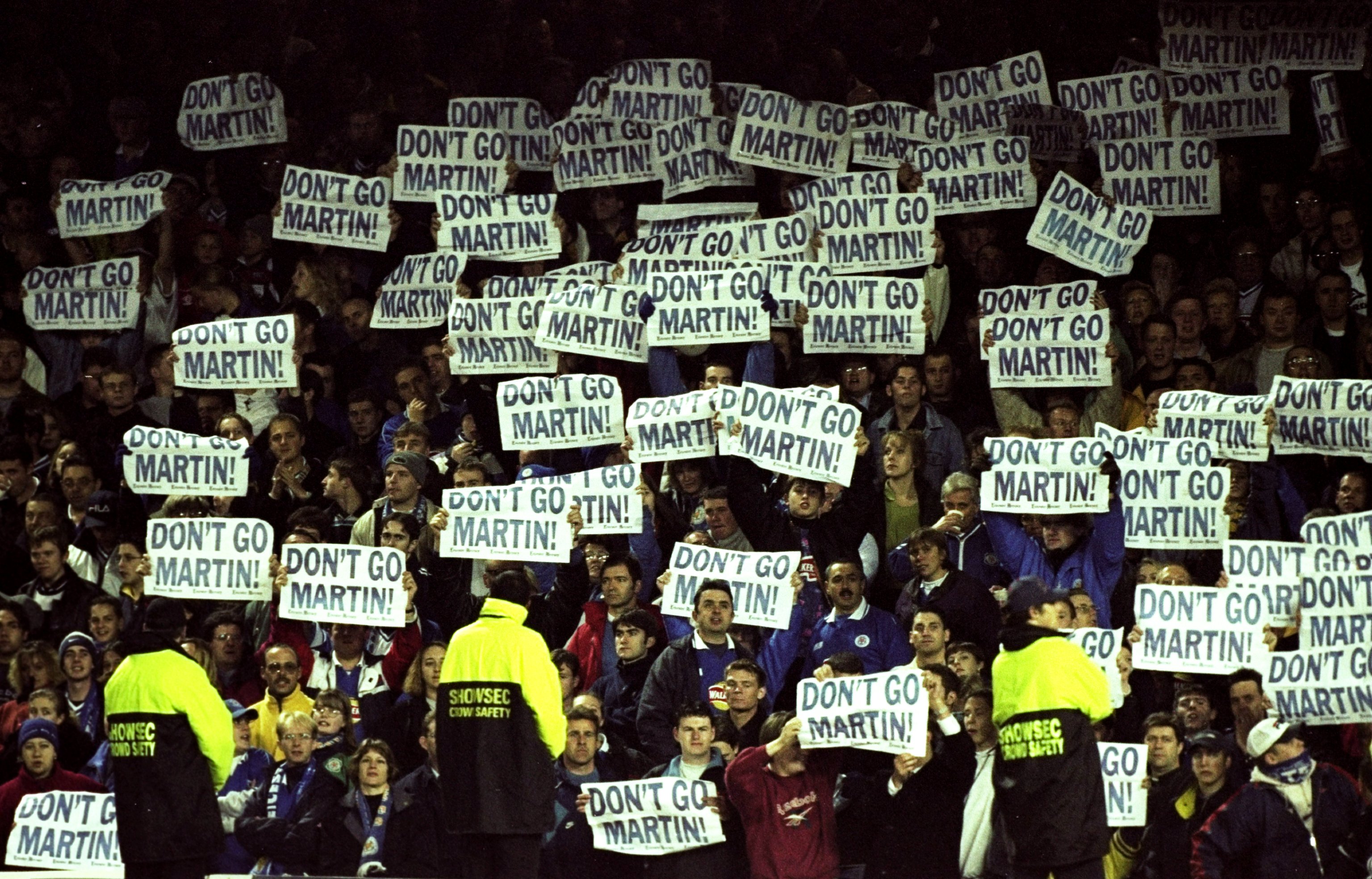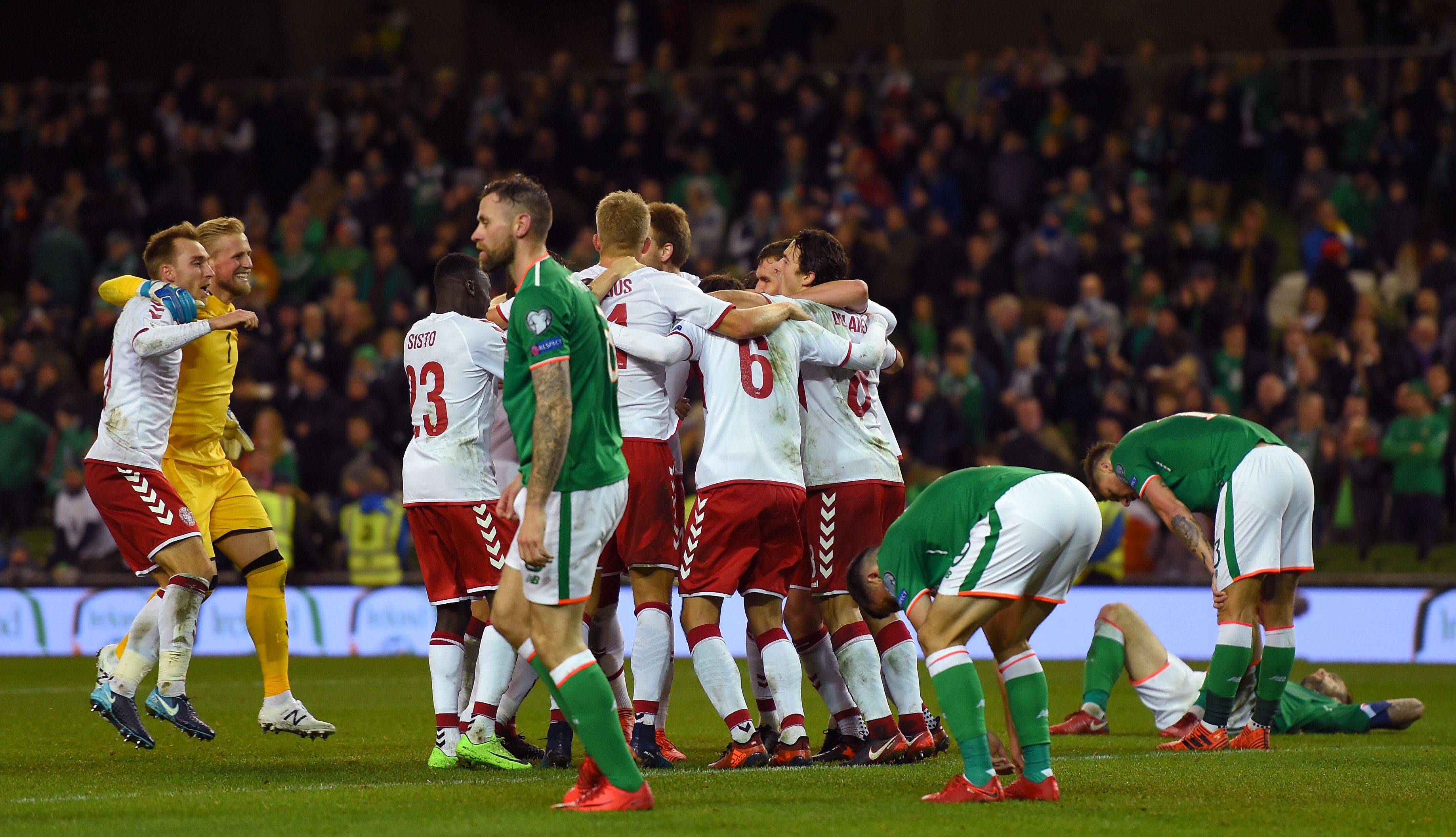

Share
11th January 2018
08:54pm GMT

Many of the same people will also have been underwhelmed by the reports on Thursday night that Martin O’Neill was about to stay on as Ireland’s manager.
For a man who led Ireland to some of the greatest nights in their history, this lack of panic is revealing.
There is no clamour for him to go. There is no clamour for him to stay.
When Leeds United wanted O’Neill as their manager in 1998, Leicester City fans used a game against Tottenham Hotspur to make their club’s case. “Don’t go, Martin,” their signs said while they chanted the manager’s name for the duration of the game.
 There have been no protests by Irish fans demanding that the manager who inspired a team to victories against Germany and Italy should stay. There has been no sense of public disquiet that the manager who led Ireland to their most important away win in thirty years might leave.
Although given that Ireland don't have a game until March, a competitive match until September and a European Championship qualifier until 2019, it would be hard to find a suitable venue for those protests, if they were planned. Which they're not.
There have been no protests by Irish fans demanding that the manager who inspired a team to victories against Germany and Italy should stay. There has been no sense of public disquiet that the manager who led Ireland to their most important away win in thirty years might leave.
Although given that Ireland don't have a game until March, a competitive match until September and a European Championship qualifier until 2019, it would be hard to find a suitable venue for those protests, if they were planned. Which they're not.
Yet, it is strange that a manager who restored the sense that Ireland could beat any team that stepped out against them at Lansdowne Road could leave with nothing more than a collective shrug.
It is also strange that a manager who brought Ireland to a World Cup play-off could return and be greeted by the public with the same degree of enthusiasm that comes from answering the door to the man who has come to read your gas meter.
The second leg against Denmark has a lot to do with that, but maybe not everything. O'Neill got it terribly wrong on that night. His substitutions were baffling and the approach wrong. He was wounded by the reaction, but he had found the criticism inexplicable for some time.

O’Neill arrived in the Ireland job dismayed at how he had been treated at Sunderland and scathing, with good reason, about the man the club had chosen as his replacement.
He has a high opinion of his own abilities, also with good reason, but he seemed to grow increasingly resentful of those who didn’t share that opinion, particularly among the Irish media.
He may well have felt that the criticism in Ireland given the players he was working with was excessive, but the counterpoint was always that Ireland weren't exactly facing teams of outstanding quality either.
The next stage, if he stays, will involve not just a rebuilding, but a different approach which is why it might be best if Stoke can find a way of making him their next manager. But there may be other factors in the muted reaction. If there is a cycle of football, Ireland is passing through the underwhelming phase. All indications are that this a phase that will take some time. Ireland is a team in transition, but maybe all Ireland teams are teams in transition, attempting to make the world a little less difficult, a little less harsh, when the odds will always be loaded against them. But perhaps a reality is also sinking in about the international side. When O’Neill and Roy Keane were appointed in 2013, they were the dream ticket. People were excited to see them in action, so excited that they forgot you don’t really get to see managers in action. You get to see the players they pick in action. Or, in the case of Keane, you get to see him in action at a press conference.The players O’Neill picked and the style he adopted can be questioned. In his defence, he wasn't working with the most talented group of Irish players, but as time passed, this lack of talent seemed to become more of an issue as he found himself lamenting those like Robbie Keane who had gone before.
Whoever is Ireland manager for the next two years must do more than manage for the now, which is O'Neill's greatest strength, but also his weakness. O'Neill, a manager who has always stressed the short term, must look to do something different. There are managers who would be better suited to it, there are managers like Stephen Kenny whose appointment might shake things up and there are managers like Mick McCarthy who still yearn for the job and might be better suited to rebuilding. But the reality about the international side may now mean people understand that there is no dream ticket. There is no manager and no salary that can make Ireland what they're not without an attempt to tackle the fundamental problems in the development of Irish footballers.On Thursday night, it appeared that Stoke’s preference was for Quique Sanchez Flores to take over, which would leave O’Neill free to continue his job with Ireland. He is said to be the club's second choice, although the fans of the club, like the fans of Everton when he was linked with that job, appear to place him further down the list than that.
O'Neill, it seems, could yet return to the Ireland job and sign that contract which was verbally agreed last year. Given the response to the reports this week, he will be greeted by the public with all the acclaim and relief of a boy who decides to shock his family by running away from home but returns a couple of hours later to find them watching TV, unaware that he had gone in the first place.
Martin O'Neill has led Ireland to some of their most magical nights, so it is strange and a little sad that the idea that he might leave is received with such ambivalence. But that might be part of his legacy. His legacy could be the reluctant and weary recognition that in the long and endless transition of Irish football, one man can't solve the problems that really need to be fixed by a nation.Explore more on these topics: